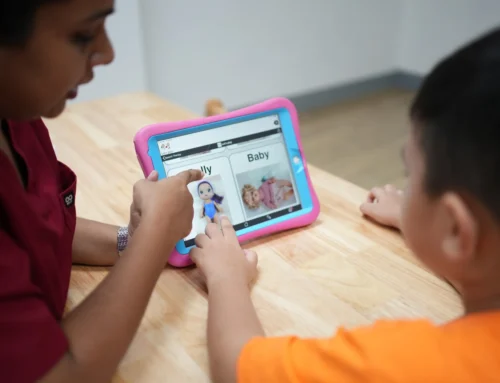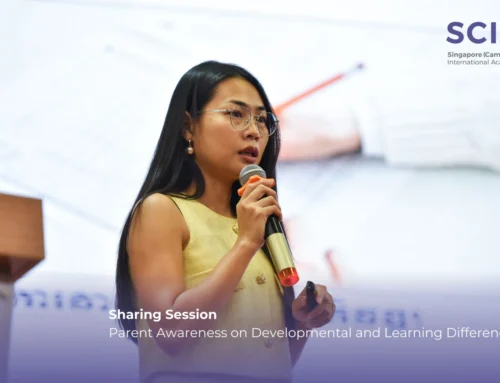Children born with a cleft palate often face unique challenges in developing clear speech. Beyond the physical aspect of the condition, communication difficulties can affect a child’s confidence, learning, and social connections. With the right intervention, however, these barriers can be overcome. This is where speech therapy for children with cleft palate plays a vital role — especially in Cambodia, where awareness and access to professional therapy are steadily growing.
Understanding Speech Challenges in Children with Cleft Palate
A cleft palate occurs when the roof of the mouth doesn’t fully close during early development, leaving an opening that affects airflow and sound production. Even after surgical repair, many children continue to experience speech issues such as:
-
Nasal speech (air escaping through the nose while talking)
-
Difficulty pronouncing certain consonants (like “p,” “b,” “t,” and “k”)
-
Voice resonance problems
-
Delayed language development
These difficulties are not just about pronunciation—they influence how a child communicates ideas and interacts socially. In classrooms and playgrounds across Phnom Penh, teachers and parents may notice that a child with a repaired cleft palate struggles to be understood. Early identification and ongoing therapy are therefore essential for long-term success.
How Speech Therapy Supports Communication Development
Speech therapy focuses on improving the mechanics of speech while building language confidence. At OrbRom Center, therapists use evidence-based approaches designed to help each child’s unique needs. Key focus areas include:
1. Strengthening Oral Muscles
Therapists use fun and targeted exercises to improve oral motor control. For example, blowing through straws, humming, or using whistles helps strengthen the soft palate — a critical part of producing clear sounds.
2. Correcting Sound Production
Children learn correct articulation through games and repetition. Speech-language pathologists use mirrors, flashcards, and tactile feedback to teach how sounds should feel and look when spoken correctly.
3. Improving Resonance and Airflow
Techniques such as visual feedback and airflow control activities help children redirect air properly through the mouth instead of the nose.
4. Language and Confidence Building
Beyond articulation, speech therapy sessions emphasize communication confidence. Therapists encourage storytelling, role-play, and group-based activities to help children practice in a safe and supportive environment.
By addressing both physical and emotional aspects, therapy empowers children to communicate more naturally — helping them thrive at home and school.
The Importance of Early Intervention in Cambodia
Timing is crucial when it comes to speech therapy for children with cleft palate. Early therapy — ideally beginning soon after surgical repair — leads to better long-term results. In Cambodia, many children may not receive timely intervention due to limited access to specialized services.
At OrbRom Center in Phnom Penh, therapists collaborate closely with families, schools, and medical professionals to ensure holistic care. Through regular assessments (learn more about assessments here) and individualized plans, children progress step by step toward clear and confident communication.
Early support can prevent speech habits from becoming ingrained and reduce frustration for both children and parents. Moreover, starting therapy early helps children transition smoothly into school environments — enhancing participation, literacy, and peer relationships.
A Family-Centered Approach to Therapy
Parents play a central role in supporting their child’s speech journey. Therapists often provide home-based exercises and guidance to reinforce progress outside of sessions. Activities like reading aloud, naming household items, and singing can make daily life part of the learning process.
At OrbRom Center, family involvement is encouraged throughout the therapy process. By working as a team, parents, therapists, and teachers can create consistent communication support in every environment — at home, in class, and within the community.
For preschool-aged children, integrating speech goals into early learning environments (see Preschool Program) ensures continued progress through play-based and social interaction activities.
Why Choose Professional Speech Therapy in Phnom Penh
Not all speech issues related to cleft palate resolve on their own. Without specialized therapy, a child may develop compensatory speech patterns that are hard to correct later. Professional intervention from experienced speech-language pathologists can make a transformative difference.
OrbRom Center provides comprehensive speech therapy services tailored to children with cleft palate and other communication disorders. Each program begins with an in-depth assessment, followed by customized sessions that target specific speech and language goals.
Therapists also collaborate with occupational therapists (learn more) and special education teams to support overall development — from attention and motor skills to social communication.
Helping Every Child Find Their Voice
Every child deserves the chance to communicate clearly and confidently. With early, consistent, and specialized speech therapy for children with cleft palate, children in Phnom Penh and across Cambodia can overcome speech barriers and connect meaningfully with the world around them.
If you notice your child struggling with speech or resonance after cleft repair, don’t wait. Seek a professional evaluation and begin a personalized therapy plan. Small steps today can lead to big breakthroughs tomorrow.







